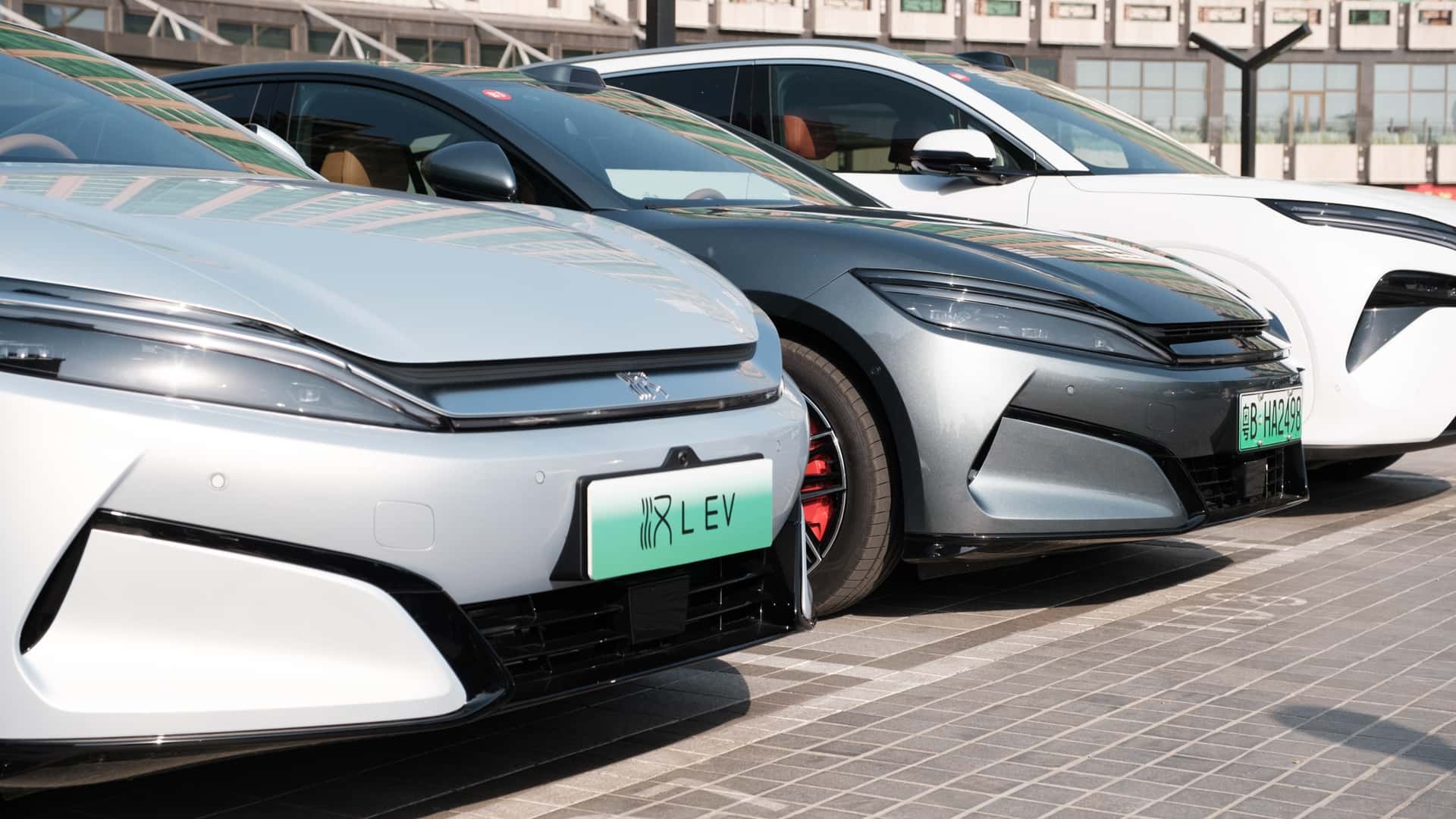The Chinese government is trying to address problems with too many electric vehicles (EVs) and a very competitive market where EVs are sold at low prices.
The government says it might take action against car brands that sell their vehicles too cheaply to hurt other companies.
Chinese President Xi Jinping asked if every province needs to invest in building EV infrastructure.
China’s electric vehicle market is very impressive. It’s clear that the country is far ahead of the rest of the world in this area.
There are so many different EV models available that it’s hard to imagine how many brands can survive. New models and brands appear almost every day, trying to get the attention of a limited number of Chinese consumers.
Several Chinese regulators and politicians, including President Xi Jinping himself, have recently called for the industry to slow down investments and reconsider how businesses are operating.
The intense price competition is hurting smaller companies. Some have reported not being paid on time.
Chinese car brands recently agreed to a standard 60-day payment schedule for their suppliers. However, the government wants to take a tougher approach.
Officials in the Chinese government recently held a meeting to encourage stricter price controls and better long-term regulation in the EV market. They called for an end to “irrational price cuts,” which means some companies are intentionally selling vehicles below cost to gain sales. If this continues, the government might step in.
President Xi Jinping has also criticized new technologies like artificial intelligence and EV development, but he specifically questioned the level of investment in local car companies. He asked if all provinces in the country need to develop industries in these areas.
Chinese automakers have received support from both the central government and local governments to boost their economies. This support has contributed to an oversupply and overcapacity in the EV market.
While China will continue to invest heavily in EVs, the current level of investment and variety of models is becoming unsustainable. There isn’t enough room for all these competitors, and many EV brands are not making a profit. There are too many factories with not enough demand.
It’s unclear how the Chinese government will fix these problems in the EV industry. It’s likely that there will be more consolidation among brands, and this process might happen more quickly now.

I’m Rohan Mehta, the voice behind KhelRe—a trusted and steadily growing blog dedicated to electric vehicles (EVs) in India. With over five years of experience as a tech and automotive blogger, I turned my frustrations with owning an EV into a mission: to help others make more intelligent choices in this fast-evolving world of electric mobility.
I’ve been an early adopter of EV technology—I repurchased my first electric scooter in 2019. That experience opened my eyes to both the promises and the pitfalls of this new mode of transport. From slow charging times and range anxiety to misleading specs and hidden costs, I’ve faced it all. But instead of walking away, I decided to write about it.
That’s how KhelRe was born—a no-nonsense, hands-on blog where I share practical, real-world reviews of EV cars, bikes, and scooters. I break down features, range, performance, and pricing from a user-first perspective. I take pride in simplifying complex tech into clear, valuable insights—offering tips, ownership stories, and advice you won’t find in flashy press releases or sales brochures.
Whether you’re a first-time EV buyer or just a curious auto enthusiast, my goal is to help you navigate the EV landscape with confidence. My motto: “EV knowledge should come from experience, not just brochures.”
When I’m not test-driving the latest e-scooter or comparing charging networks, you’ll probably find me tinkering with my garage EV setup, chatting with fellow enthusiasts online, or sipping chai while writing my next blog post from a cosy local café.

